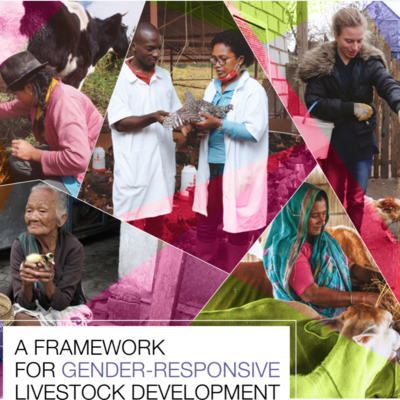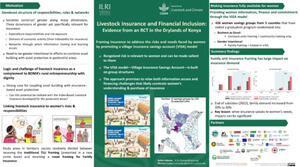
Gender planning
This project aims to help ILRI and its partners make gender the ‘new normal’ in livestock research and development, moving it to the heart of livestock agendas and investments and driving technical and transformational interventions so women can achieve better lives through livestock.
Much effort has been geared towards ‘gender mainstreaming’ to ensure that women’s needs, capabilities and constraints are included in the development of technologies, practices and business approaches. Such mainstreaming in livestock often aimed to highlight the underplayed, invisible and underestimated roles of women, making the case for women not to be overlooked. While it had its successes, mainstreaming was more about including – or not excluding – women without really making them the focus of interventions.
Thus, we now recognize that more comprehensive approaches are needed, based on a thorough understanding of the totality of gender dynamics surrounding livestock, and of the needs and aspirations of both men and women, including barriers and opportunities. This requires greater intentionality in our gender work, and serious exploration and implementation of gender transformative approaches.
ObjectiveThe primary outcome of this project is a realistic, actionable, conceptually-robust and evidence-based learning and implementation agenda for transformative work on gender in livestock research and development that investors and researchers can adopt. Outputs
| ||
ApproachThe approach taken in this project is to consolidate evidence, collaborate across disciplines and strategize for the future. |




















